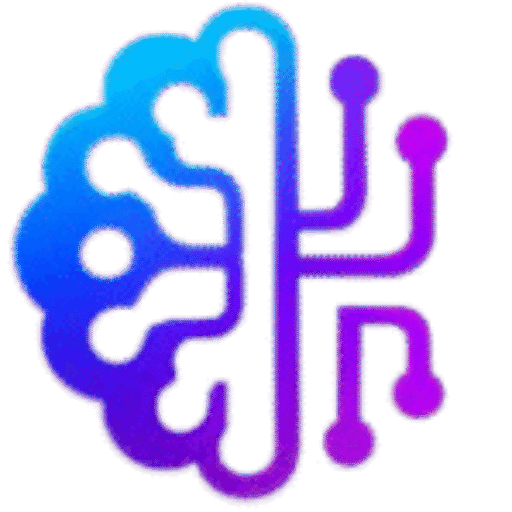Best AI Tools for Travel & Booking Platforms
Introduction
The travel and booking industry has changed dramatically in the last decade. Gone are the days when travelers relied solely on travel agents or offline bookings. Today, AI-powered tools are revolutionizing how people search, book, and experience travel. From personalized recommendations to dynamic pricing models, AI is enhancing efficiency and customer satisfaction for travel businesses worldwide.
In this blog, we will explore:
- What AI means for travel and booking platforms
- Why AI is essential for modern travel businesses
- A list of the best AI tools for travel and booking platforms
- Benefits and use cases of each tool
- Future trends in AI travel technology
This guide is designed for travel startups, booking agencies, hotel platforms, airlines, and app designers who want to integrate AI for better conversions and customer experiences.
Why AI is a Game-Changer in Travel & Booking Platforms
AI helps the travel industry in several ways:
- Personalization—tailored recommendations for flights, hotels, and activities.
- Chatbots & Virtual Assistants—24/7customer support for bookings and FAQs.
- Dynamic Pricing—Adjusting hotel or flight prices based on demand.
- Fraud Detection – Preventing fake bookings and suspicious transactions.
- Predictive Analysis—Understanding customer behavior to optimize offers.
- Content Generation—AI-generated descriptions, itineraries, and ads.
According to recent reports, over 70% of travelers prefer AI-powered suggestions during trip planning. This makes AI not just a luxury but a necessity.
1. Amadeus AI Travel Platform
Overview
Amadeus is one of the most widely used travel technology providers. With its AI-driven API, it powers search, booking, and customer management for airlines, hotels, and OTAs (Online Travel Agencies).
Key Features
- AI-based flight search & fare comparison
- Predictive booking insights
- Personalization for travelers
- Dynamic pricing and availability
Use Case
A booking platform can integrate Amadeus to provide real-time flight availability and smart recommendations for users.
2. Booking.com AI System
Overview
Booking.com has its own AI-powered system that helps partners (hotels, BnBs, and agencies) optimize their listings.
Key Features
- AI chatbots for customer service
- Personalized travel recommendations
- Machine learning for fraud prevention
- AI-generated content for hotel descriptions
Use Case
Hotels can use Booking.com AI features to attract more guests with smart promotions and automated responses to FAQs.
3. Expedia AI Platform
Overview
Expedia uses AI-driven algorithms to help users plan trips with smart search and recommendations.
Key Features
- AI-powered trip planner
- Natural language queries for travelers
- Predictive search results
- Personalized hotel & flight suggestions
Use Case
Expedia’s AI can help a travel app provide custom itineraries based on user preferences like budget, activities, or destination.
4. TravelPerk AI (for Business Travel)
Overview
TravelPerk specializes in corporate travel solutions. Its AI platform simplifies business trip bookings and optimizes expense management.
Key Features
- AI-based travel policy compliance
- Automatic itinerary updates
- Smart budget management
- 24/7 chatbot support
Use Case
A company can integrate TravelPerk AI to reduce costs and automate travel management for employees.
5. Skyscanner AI
Overview
Skyscanner uses AI to deliver fast and accurate flight searches. It’s one of the most popular AI-driven travel search engines.
Key Features
- AI-powered flight & hotel search
- Predictive pricing alerts
- Natural language-based search
- Smart personalization
Use Case
Travel apps can use Skyscanner’s API to let users find the cheapest flights and hotels in seconds.
6. Hopper AI
Overview
Hopper is a travel app that uses AI to predict flight and hotel prices with high accuracy.
Key Features
- Predictive algorithms for pricing
- Automated booking reminders
- AI-based push notifications for deals
- Machine learning for best booking times
Use Case
A booking platform can integrate Hopper’s predictive AI to increase conversions by alerting users when it’s the right time to book.
7. Kayak AI
Overview
Kayak has invested heavily in AI for personalized trip planning. Its tools enhance customer engagement with smart itineraries.
Key Features
- AI-driven trip planner
- Natural language travel search
- Chatbot assistant (Kayak on WhatsApp & Messenger)
- Price prediction tools
Use Case
Kayak’s AI chatbot can be embedded into travel websites for 24/7 customer engagement.
8. TripActions AI
Overview
TripActions is another corporate travel AI tool that focuses on smart expense management and automated trip planning.
Key Features
- AI-driven booking automation
- Expense optimization
- Predictive policy enforcement
- AI-powered travel assistant
Use Case
Best for business booking platforms where cost efficiency and compliance are priorities.
9. Airbnb AI
Overview
Airbnb uses AI to match travelers with personalized stays. Their AI tools analyze user preferences and recommend properties.
Key Features
- Smart property matching
- AI-driven guest communication
- Fraud prevention
- Dynamic pricing optimization
Use Case
Travel agencies can adopt similar AI-driven recommendation engines for homestays and rentals.
10. Sabre AI Platform
Overview
Sabre is a travel tech giant offering AI-powered APIs for airlines and agencies.
Key Features
- Smart inventory management
- AI-enhanced booking engines
- Predictive analytics
- Fraud detection
Use Case
A travel startup can use Sabre’s AI API to scale bookings and automate pricing strategies.
Benefits of AI in Travel & Booking Platforms
- Boosts Conversions—Personalized offers increase booking likelihood.
- Saves Time—Faster search results and recommendations.
- Reduces Costs—AI-driven pricing ensures profitability.
- Improves Customer Support—Chatbots provide 24/7 assistance.
- Enhances Trust—Fraud detection ensures secure transactions.
Future of AI in Travel & Booking Platforms
- Voice Search Travel Bookings—”Alexa“, book me a hotel in Dubai.”
- AI-Powered Virtual Travel Guides—Personalized digital assistants.
- Hyper-Personalization – AI-driven itineraries for each traveler.
- Blockchain + AI in Travel—Secure, transparent booking records.
- Augmented Reality + AI—AR previews of hotel rooms or attractions.
Conclusion
AI is transforming how travel and booking platforms operate. From search and personalization to pricing and fraud prevention, AI ensures that travelers enjoy a seamless, efficient, and personalized experience.
For travel businesses, adopting these AI tools is no longer optional—it’s the key to remaining competitive and maximizing revenue.
If you are a travel platform designer or business owner, now is the perfect time to integrate AI tools to revolutionize your booking systems.
Interlinking (Suggested Previous Blogs to Add at the End)
- How to Use AI for Predictive User Flows
- How to Automate Asset Generation with AI
- Best AI Tools for Government Product Designers
- How to Use AI Tools for User Journey Mapping





